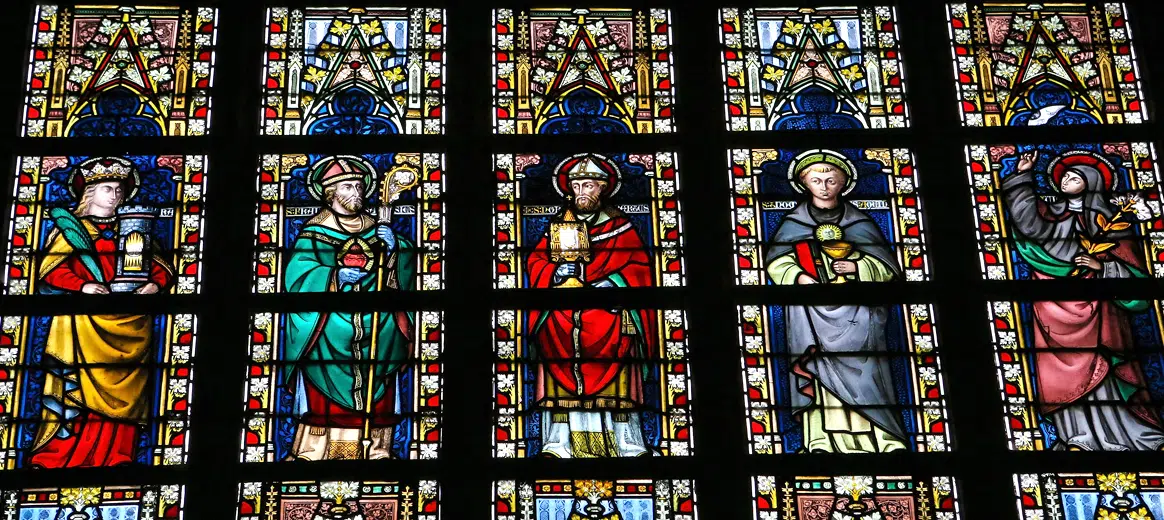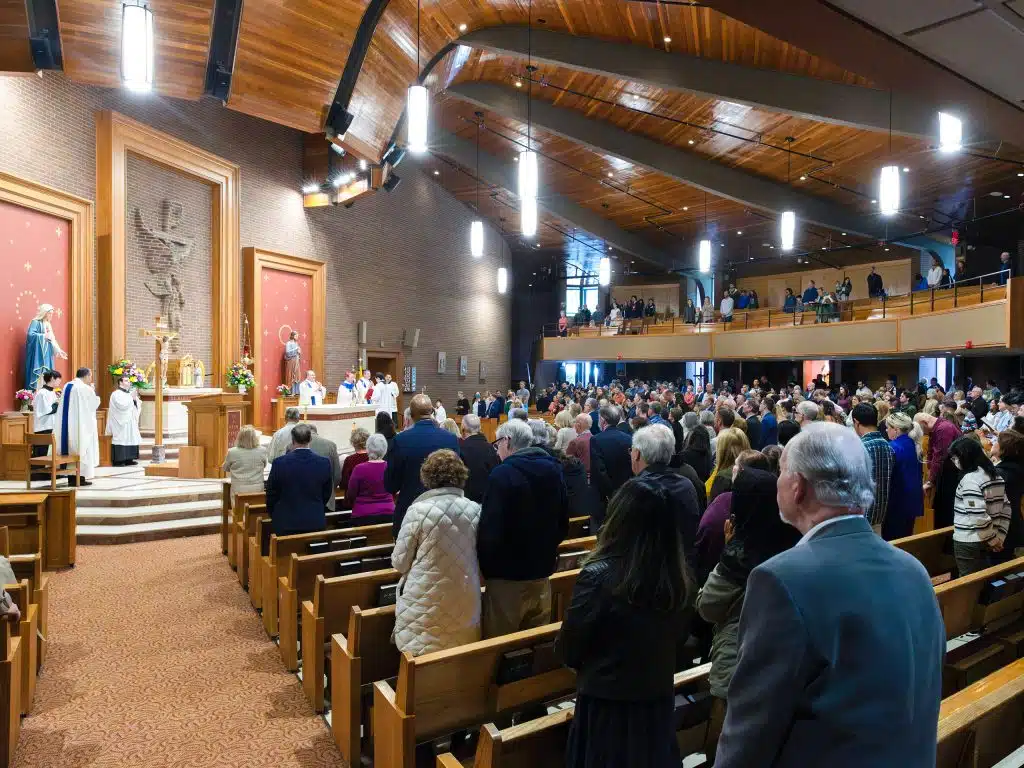Martyrs of Lyons
Feast day: June 2
Only a handful of eyewitness accounts of the sufferings of the early martyrs have survived. The most famous is the journal St. Perpetua kept while she was in prison in Carthage and awaiting death. But the most dramatic is the lengthy, anonymous letter written to the churches in Asia Minor, written by someone who witnessed the trial and grisly martyrdoms of Christians from the cities of Lyon and Vienne in modern-day France.
In 177, persecution flared up in the cities of Lyon and Vienne in southeastern France. It began with decrees that banned Christians from appearing in public, moved on to attacks on Christians who dared to venture out, expanded to breaking into and looting the homes of Christians, and reached its climax when dozens of Christians from the two cities were arrested and brought to trial. “The Adversary,” the author of the letter says, “fell upon us with all his strength.”
To accommodate the large number of the accused and the huge crowd that came to see them condemned, the magistrate moved the trial outdoors, to the forum of Lyon. The case degenerated into a parody of Roman law. A learned man, Vettius Epagathus, stepped forward to defend the Christians. The magistrate rejected Vettius’ offer, then asked if he was a Christian, too. Vettius confessed that he was, and immediately soldiers seized him and forced him to join the huddled, frightened band of the accused. Among them was the bishop of Lyon, Pothinus, a man over 90 years old. In the middle of the trial, the mob of spectators attacked Pothinus, beating and kicking him so severely that afterward he died in prison.
Some of the Christians’ pagan slaves had been arrested with them. To avoid being tortured and executed with their masters and mistresses, these slaves gave false testimony, that Christians were cannibals, that they especially delighted in eating children and that they committed incest. These lies were exactly what the mob wanted to hear, and gave the magistrate the excuse he needed to condemn the Christians to death in the arena.
The graphic description of the martyrdom of the saints is hard to read. In the arena, with the spectators howling for their blood, the martyrs were mauled by wild bears, gored by wild bulls, roasted over fires, and suffered other punishments too grisly to describe here. The author of the letter tells us that in the arena, the Christians “made manifest their nobleness by their patience and fearlessness and fortitude.”
Prominent among these martyrs was St. Blandina, a young slave woman who was the last to die; St. Sanctus, a deacon; St. Maturus, who was newly baptized; St. Biblis, whom the executioners tried to force to confess that she was a cannibal; St. Vettius, who had offered to defend his fellow Christians before the magistrate; St. Alexander, a physician from Vienne; and St. Ponticus, who was only 15 years old.
Craughwell is the author of This Saint Will Change Your Lifeand Saints Behaving Badly.
Patron Saints for the Falsely Accused
The Martyrs of Lyon and Vienna (died 177)
Feast day: June 2



